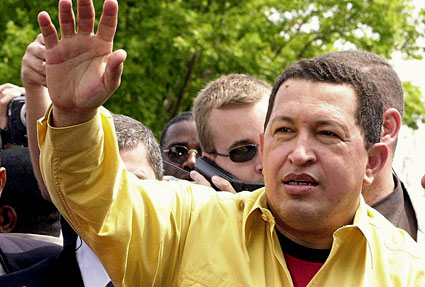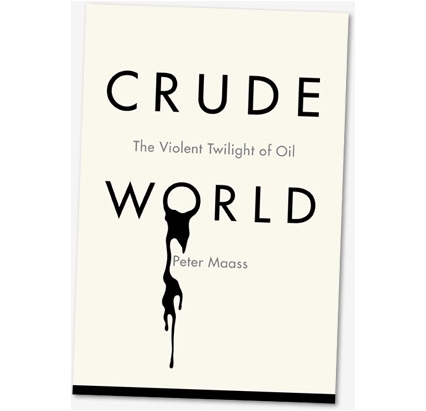Venezuela
-
Forests poised for major progress in Cancun — if Hugo Chavez and U.S. don't get in the way
The Cancun climate summit may be turning into a surprising opportunity for progress towards saving the world’s forests and other ecosystems.
-
Saudi oil cheaper than American oil
To offshore drilling advocates, the oil-soaked birds washing up on the Gulf shore are a regrettable sacrifice in our pursuit of a higher calling: energy independence. Oil is a nasty business, they admit, but to them, offshore drilling is better than continuing to buy our oil from hostile countries like Iran, Saudi Arabia, and Venezuela. […]
-
Agribiz giant ADM gets taste of Hugo Chavez’s wrath
Longtime Grist readers might recall reading here about a Mexico-based transnational company called Gruma. I’ve written two articles (in 2006 and 2007) about how, after Mexico’s privatization bonanza in the early ’90s, this well-connected company managed to industrialize one of the world’s greatest foodstuffs, the tortilla, strip it of its flavor and much of its […]
-
How many Venezuelan soldiers does it take to change a lightbulb?
An entire army, apparently. El Presidente of Venezuela, Hugo Chavez, put in big orders for energy efficiency when he commanded the country’s lightbulbs get swapped for CFLs. Why the power play? A drought of hydropower has the nation in energy crisis and the military armed with efficient lightbulbs, laying waste to every wasteful incandescent in […]
-
The Copenhagen Accord: A Big Step Forward
The Copenhagen climate deal that President Obama hammered out Friday night with the leaders of China, India, Brazil and South Africa broke through years of negotiating gridlock to achieve three critical goals. First, it provides for real cuts in heat-trapping carbon pollution by all of the world’s big emitters. Second, it establishes a transparent framework […]
-
The violent twilight of oil and a strategy to expose it
MaassPhoto courtesy Erinn Hartman/KnopfNew York Times Magazine contributing writer Peter Maass spent eight years following the flow of oil around the world, from fields in Saudi Arabia, Iraq, Russia, Venezuela, Nigeria, and Azerbaijan to corporate boardrooms. His new book, Crude World: The Violent Twilight of Oil, uses stories from these locales to show why the […]
-
‘Localwashing’ in pictures — bogus marketing at its finest
Local food, local goods, local everything is in, as you’ve no doubt heard. Local is fresher. Local burns less shipping fuel. Local keeps the wealth nearby. Naturally, there’s money to be made off local, so big businesses are muscling into the game. The emerging term is localwashing—a variation on greenwashing wherein businesses claim to be […]
-
Oil diplomat or man of the people?
On the defensive after George Bush and Lula da Silva of Brazil started getting friendly over ethanol, Hugo Chavez has now backed away from plans for building a massive array of 29 ethanol plants.
His rationale tears a page from the nascent biofuel backlash movement, saying that land should be used to feed people, not to fill "rich people's cars." As with most things Chavez, this is probably largely about politics and somewhat about people: he doesn't want to be outflanked by Bush's new foothold in the region. But it's a stand that will win him points in many quarters, and he's expected to make it again later this month at a South American energy summit.
-
New scheme for OPEC would make Venezuela’s oil reserves world’s largest
There's some big stuff happening in Venezuela these days. In an interview with the BBC, President Hugo Chavez announced a bid that could change the entire world oil situation. He wants OPEC to set its long-term oil target price at $50/barrel. Why? At $50, large portions of Venezuela's copious heavy crude in the Orinoco Tar Sands become economically viable, and Venezuela's official oil reserves automatically skyrocket to 312 billion barrels -- surpassing Saudi Arabia's 262 billion, currently the world's largest.
This would raise OPEC's production quotas, bring in a bucketload of new revenue to the Venezuelan government (which just renegotiated more favorable terms with several oil companies, and seized oil fields from two companies that refused to cooperate), and dramatically increase the country's influence and Chavez's stature.
The best summary I've seen is this one from Motley Fool:





